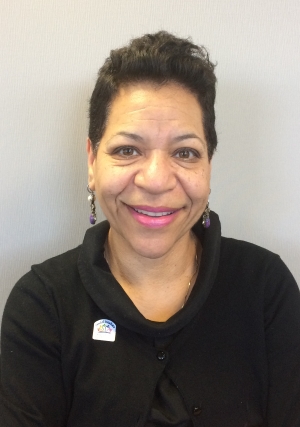Social Work Doctoral Student Spotlight: Validating the role of community health workers on interdisciplinary teams

Rebeca Guzman, LMSW
Validating the role of community health workers on interdisciplinary teams
Professional Biography
A trainer of community health workers for nearly 30 years, Rebeca Guzman has devoted the majority of her career to the promotion of maternal and child health through successful implementation of the federal government's Healthy Start Program. After earning her Bachelor of General Studies and Master of Social Work at the University of Michigan, Rebeca joined the staff of the Wayne State School of Medicine Department of Community Medicine, which was home to one of the inaugural 15 Healthy Start grants to educate pregnant women and new mothers and connect them with the health care and other resources they need to promote positive birth outcomes. As program administrator, Rebeca managed the day-to-day operations and budget and convened a community-based advisory board. She remained with the program during its transition to several new oversight agencies (to Wayne State's Merrill Palmer Skillman Institute in 2005; to Southeastern Michigan Health Association in 2009; and finally to Institute for Population Health in 2013), expanding her role to facilitate weekly childbirth education classes, manage community-based projects, train staff on client interventions, and supervise community health workers. In addition to these responsibilities, she now oversees community health worker training for the eastern half of the state in partnership with Michigan Community Health Worker Alliance, Henry Ford College and Mott Community College, and assists with the development of the 126-hour training curriculum. She completed the Wayne State School of Social Work's Graduate Certificate in Research and Evaluation in 2015.
Research/Dissertation
Around the world, use of community health workers has proven to be an effective outreach strategy for improving outcomes among disenfranchised populations that don't respond to the traditional medical model, Rebeca notes. Despite this, there is limited research on how community health workers "" who typically are recruited from, and reflect characteristics of, the at-risk communities they serve "" evolve as change agents during the training process that empowers them to help others. Rebeca's research focus is on better understanding how community health workers see themselves before training, after training, and after a meaningful period of practice.
Why It's Important
Because they do not have the same work histories, academic training, and credentials as other types of public and clinical health care practitioners, community health workers have historically gone without the validation and support they deserve, Rebeca points out. More recently, however, the Affordable Care Act has emphasized their importance, highlighting their ability to provide culturally appropriate health care in a variety of settings and calling for increased workforce integration with wider utilization of community health workers. The research Rebeca plans to pursue will help support and validate community health workers' contributions to a multidisciplinary team approach to care. "Within the public health framework, community health workers have a lot in common with social workers in that they work intimately within the client environment to address social determinants of health and consequently gain trust and credibility that allow them to positively influence client health care choices," said Rebeca, who is currently training community health workers in Flint, Mich., where residents' mistrust of government officials is a major public health concern. "They have a vital contribution to make, and if we can better define their role and scope of practice we can validate them and realize their full potential."
Faculty Support
Rebeca was drawn to the School of Social Work's doctoral program while earning the school's Graduate Certificate in Research and Evaluation, which allowed her to get to know the social work faculty and their range of research expertise. "Everyone I talked to was extremely encouraging and convinced me that the Ph.D. program would be a good place to evolve as a practitioner and as a scholar," Rebeca said. Through an independent study with Assistant Social Work Professor Carolyn Dayton, who serves as associate director of Merrill Palmer's Infant Mental Health Program, Rebeca conducted an evaluation of a health equity training she conducts at the Institute for Population Health and has presented her findings at national and state conferences. "Wayne State's urban mission and location in Detroit adds credibility to my work and allows me to apply my work to my coursework in a way that is valued within the institution," Rebeca said. "This keeps my studies 'real' for me and has helped ease the transition from practitioner to student." Associate Professor Faith Hopp, who serves as Rebeca's faculty advisor, said "as a doctoral program located in the City of Detroit, we are keenly interested in attracting students who are passionate about community engagement and leadership. We expect that the research training Rebeca receives here will help her to be a national leader in social work as the profession seeks to address racial and ethnic health disparities and public health challenges, particularly through research aimed at further development and strengthening of multidisciplinary health care teams that reflect the communities they serve."
To read about other social work doctoral students and the research they are pursuing, click here: http://socialwork.wayne.edu/phd/student-spotlight.php